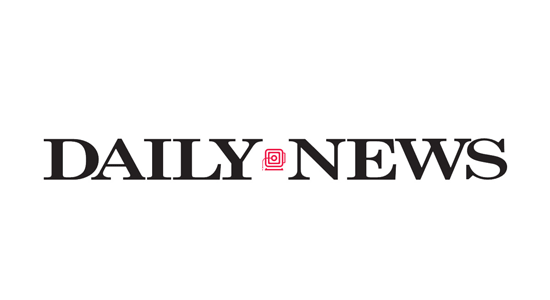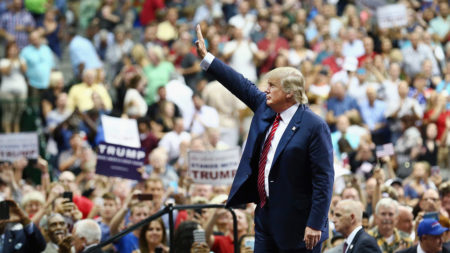

 American friends, you might not like to hear this coming from a Russian, but your Founding Fathers did not trust you at all. Don’t feel bad, because that most remarkable constellation of 18th-century intellect and courage didn’t trust anyone.
American friends, you might not like to hear this coming from a Russian, but your Founding Fathers did not trust you at all. Don’t feel bad, because that most remarkable constellation of 18th-century intellect and courage didn’t trust anyone.
The first modern democratic republic was founded on this healthy distrust of human nature, which led the Founders to construct a web of checks and balances to create the first nation of laws, not of men. The Founders were so skeptical because what they were attempting had no precedent. They prepared for the worst because they saw it all over the world: a world ruled by monarchs and dictators and warlords.
The authors of the Constitution fretted about a democracy that might slide into mob rule, or a President who might fashion himself emperor. They worried that too much political influence could accrue to small groups with extreme positions, and that a largely uneducated populace could be easily swayed by a demagogue who preyed on voters’ basest instincts and self-interest.
They were concerned that elected officials might exploit their powers of office to seek private gain instead of the public good. You might say that the Founding Fathers saw Donald Trump coming, 229 years in advance — although if they had also foreseen Twitter, they might have reconsidered a few things.
The safeguards the Founders built into the U.S. Constitution have held up remarkably well not by being rigid, but by being able to adapt and improve.
The Founders did not trust even themselves and had no pretentions of infallibility. A nation of laws it is, but the system has also allowed for the greatness of individuals to manifest, for the right man at the right time to lead the nation, even the world, through times of great change or trouble.
Abraham Lincoln is the most obvious example, although, focusing on foreign policy alone, I wonder how different the world would look today had individuals of weaker character been in the Oval Office instead of Harry Truman and Ronald Reagan.
This elasticity also means it’s possible for the wrong man at the wrong time to do significant damage if the checks decline to check and the balance becomes unbalanced. It has been 44 years since the test of Richard Nixon, and the American system has become loose and lax from a generation of partisan pushing and pulling.
Every abuse by one party is in turn embraced and expanded on by the other, and so on in a vicious downward spiral. As the institutions weakened, the people’s faith in them — and the belief in the principles underlying them — have weakened as well.
Perhaps the most visible evidence of this decay is in foreign policy, where it is now generally accepted that the President has nearly complete autonomy to direct diplomacy and war, although this is far from what the Founders planned.
“Only Congress can declare war” has become little more than an oft-cited anachronism. While literally true, U.S. Presidents from both parties have lobbed hundreds of cruise missiles and expanded military action with special forces, drones and covert operations that are barely overseen by Congress, let alone authorized.
The Senate is also required to approve treaties with other nations, but President Obama’s Iran nuclear deal was just the latest example of how easy it is for the executive to sidestep such constraints. Instead of an open debate on agreement’s merits, we got constitutional jousting, executive waivers, lawsuits and hasty lawmaking that shouldn’t please anyone on either side.
The road to hell is paved with good intentions, but compromises on principle are the streetlights.
And what do you do if the executive simply refuses to nominate people for key positions? The Trump White House has left hundreds of positions vacant, gutting the State Department in particular. The bloated bureaucracies in D.C. could use some trimming, but not having U.S. ambassadors in hotspots like Egypt, Turkey and South Korea isn’t a sane way to do it.
While much work is simply left undone, undelegated power accrues upward, to the Oval Office, which is right where Trump wants it, free of oversight and public scrutiny. This has left the least-prepared, most unstable individual in the history of the presidency to conduct foreign policy by Twitter.
The charades and parades taking place between the Koreas right now is a perfect example. The photo-ops and proclamations are hollow at best, and at worst they risk empowering and prolonging the life of the North Korean concentration camp nation for years.
North Korea’s nuclear weapons make this a far deadlier version of the game that Obama played as well, making grand peacemaker statements about Russia, Cuba, Iran and Syria that have cost lives, not saved them.
It was wrong of Obama and it’s wrong of Trump, much as Obama’s 2009 Nobel Peace Prize was as much of a mockery as South Korean president Moon Jae-in saying that Trump now deserves one.
For what? Perhaps they can make the statuette out of North Korean uranium, because that’s the only way Kim Jong-un is going to give any up.
“If my guy does it, it’s fine. If your guy does it, it’s not” is a recipe for disaster that was prepared and cooked to perfection with Trump’s election.
Previous Presidents bent the letter of the law to advantage, but there was rarely a sense that doing so was itself the point. Trump’s administration has gone to combative new extremes while ignoring or subverting congressional and court decisions on everything from implementing sanctions against Russia to banning immigrants from specific countries.
“Can Trump really do that?” is often asked by Americans who never realized how much of their government’s operation had become based on the honor system. Obama may have acted out of misplaced idealism and Trump act out of cynical self-importance, but the rule of law is harmed either way.
These dangerous trends are what led me to form the Renew Democracy Initiative a year ago. I first reached out to some friends who were horrified by what the Republican Party had become under Trump’s influence. The original group included Octavian investor and publisher Richard Hurowitz, and prominent conservative intellectuals Anne Applebaum, Max Boot and Bret Stephens.
We all agreed that Trump is a symptom, not a cause. The populist nationalism he represents is like an opportunistic infection that takes advantage of an immune system weakened by years of poor diet and heavy smoking. A healthy body politic cannot produce a President like Trump any more than a healthy political party could choose him as its nominee.
To get to the root of the crisis, we knew we had to expand our group both ideologically and geographically. We reached out across the aisle and across the ocean with a manifesto that decries the extremism and hyper-partisanship that has made it increasingly difficult to discuss politics without hatred and hysteria.
I’m delighted that many leading lights on the left have joined us, from renowned legal scholar Laurence Tribe to proud “Hollywood elite” Rob Reiner. Historians Jon Meacham and Elizabeth Cobbs have signed on, and novelist Richard North Patterson has become a most eloquent critic of this age of unreason.
They, too, understand that it’s not enough to be anti-Trump, or anti-anything. We are united despite our many political differences because we realize that none of our goals can be achieved if the democratic institutions we all believe in aren’t functioning.
Meanwhile, the virus of illiberalism is spreading, and not just within its old Cold War borders in places like Poland and Hungary. Nationalists and demagogues are also thriving with considerable domestic support in free world bastions like Germany, the United Kingdom and the United States.
NATO member Turkey has moved into the “unfree” column, the Philippines is on its way, and the U.S. President praises their autocratic leaders as strong and popular.
For half the population of the U.S., the Soviet Union I was born in might as well be ancient Troy, the stuff of legends. The existential Communist threat that focused the free world’s mind so effectively is long gone, and good riddance.
But in its place are dozens of smaller threats, none big enough to earn the attention necessary to do much about it, but cumulatively destabilizing: Islamist terror, Russian hybrid wars, corruption and kleptocracy, failed states and waves of refugees.
The free world’s political fractures make it nearly impossible to meet these external challenges, not to mention the internal ones of skyrocketing debt and rising economic inequality.
The center is still there, being shouted down by the fringes. Radical rhetoric that would once have drawn condemnation from all sides is finding an audience among people who are increasingly convinced that the only answer to extremism is equal and opposite extremism.
But wise elders touting sanity and centrism aren’t going to motivate many of the 13 million Americans who voted for Bernie Sanders, let alone Trump’s 63 million or the even more critical 90 million who didn’t vote at all in 2016.
It is therefore vital to produce a positive agenda for real action. We want to look to the past not for solutions, but for inspiration. Young people desire grand challenges and we have failed to offer them outlets for their ambition and creativity. The Founders believed that each generation would find ways to keep democracy alive and it’s time to prove them right.
We must make building things up more attractive than burning them down. After you’re done watching “The Avengers: Infinity War,” it’s time to really save the world.
Kasparov is the chairman of the Renew Democracy Initiative and of the NY-based Human Rights Foundation.

